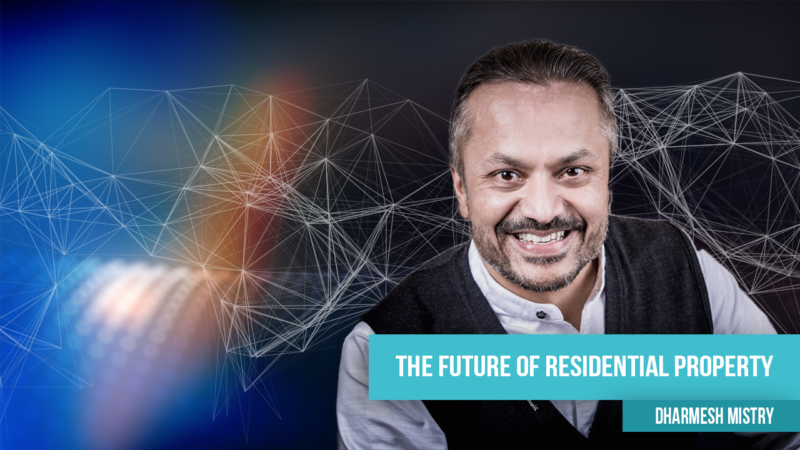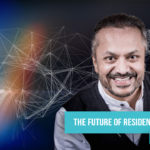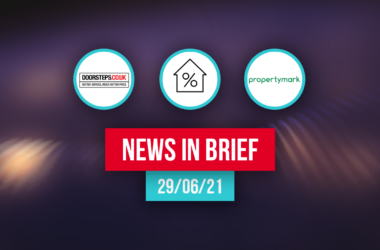What if Carlsberg built houses?
In the previous three articles, I used disruptors in other industries to describe how property developers disrupt their industry. In this final article, I take a different approach and imagine what new properties of the future could be like. I am going to base this on the famous Carlsberg advertising campaign. “If Carlsberg built houses…they would probably be the best houses in the world”
So what would the best house in the world be like? Most futurists focus on the automation of housework like cleaning and cooking which was visionary in the 1960s but hardly that exciting now. I would argue that the biggest and most exciting changes would come from changing the experience of owning a home and looking at property beyond just a sheltered space to sleep, eat or entertain.
Customer Experience
Driven by data and automation the home will become highly personalised; they will proactively learn the habits and preferences of their inhabitants and cater for their personal needs. Lighting, heating and aesthetics will change to individual choice or be bought as “designer” home experiences. Walls covered in digital paper could be changed as often as owners wanted. Heating could target individuals as they moved around the house so that the entire house is not heated and two people in the same room could have different heat settings. Most devices operated by thought control with the home itself having voice interaction similar to a personal assistant.
Modular spaces
Homes will come with a catalogue of modules and hence only limited by the owners budget and land they have purchased. Modular designs will allow for spaces to be connected easily, providing power and if required water/drainage connections. Owners could buy and sell modules as families grow and shrink over time.
Leveraging open finance and switching services, new banking services will emerge to allow households to choose a subscription package that includes utilities, entertainment, finance and protection.
Dharmesh Mistry
Homes as a subscription
The lines between rental and purchasing a property will blur as homes become a subscription so that costs can be managed easily. Leveraging open finance and switching services, new banking services will emerge to allow households to choose a subscription package that includes utilities, entertainment, finance and protection. The only difference will be whether or not your subscription includes a loan (mortgage).
5G will have made data access ubiquitous and near freely available. Homes will generate their own power, so the predictability of costs will enable an easier calculation for a subscription to run the home. This fee will include insurance for a certain amount of repairs too as the home monitoring and self-healing capabilities will mean far fewer repairs anyway. In the rental market, companies like BillingBetter, HelloMango and UtilityMix are already proving this model for landlords.
Home as a bank
The home and its use could produce more data than the most avid social media user. With increased home automation and IoT sensors, the data on a home will increase exponentially. This growth of data will allow households to generate new income by selling their data back to energy companies, banks/insurers, designers and even back to property developers.
Homes used to be described as “money pits” – slowly draining their owners of the hard-earned cash. Owners will store or sell back excess energy generated and grow their fresh produce in micro-farms placed wherever the owner desires, be it on the roof, underground or in the garden. The home will become a cash machine and generate income.

The home looks after itself
The home monitors and manages its own “health”: beyond security, fire and water leakage, every appliance is connected to notify the home of maintenance needs or for replacement. As a connected home, it provides information and reminders for regular maintenance tasks so that emergency repairs can be avoided.
IoT sensors have been embedded everywhere to measure anything and everything. The huge volume of data generated is now part of a property logbook providing a full-service history for the next owners such that a premium for a well-maintained house is easily evidenced in the logbook.
The home looks after you
Aside from looking after itself the home begins to look after its owners, reducing the time, effort, stress and cost of owning and running a home. The home plays calming music or displays inspiring images when it recognises moments of stress or anxiety. It monitors and manages water, air and light quality to maximise a healthy environment inside.
Cupboards, fridges and waste bins report back on food that has gone off or gone past its expiry date. Whilst toilets report on a users health by testing waste. The home gamifies personal hygiene to motivate each individual to be their very best.
Digital Twin
Beyond the home’s logbook, every home has a digital twin. A digital twin is a virtual model of the home that allows the owner to experiment with changes to the home before a single paintbrush or trowel is lifted. This simulation covers every aspect from design or renovation to impact on carbon footprint or finances. It enables owners to try out new home designs in virtual reality before committing changes to their real environments. The Council is connected to these twins so they can monitor the impact individual homes have on their neighbourhood or entire towns and cities.
Conclusion
Much like the Carlsberg adverts, this may sound like flights of fantasy, “not possible in my lifetime, so why should I care?” However, most technologists and futurists acknowledge that technology is evolving at a faster pace than ever before. Besides the point of these articles was to incite a different way of thinking, one that might find a way to disrupt an industry that has only previously evolved.
I truly believe that just like Tesla, Uber or Zara, there is a property development company that will significantly disrupt the industry.
So the real question is will you be the disruptor or disrupted?

Dharmesh Mistry
Dharmesh Mistry is the founder and CEO of AskHomey, a platform that helps new property developers deliver groundbreaking and exceptional customer experience for their buyers. He is also an investor and mentor in Proptech and FinTech. For over 30 years, Dharmesh has supported financial services organisations with technology and management expertise and has a proven track record of delivering transformational innovation and vision. He regularly comments on the industry and is known globally for his thought leadership.








